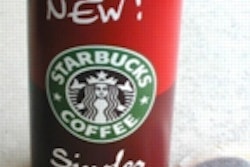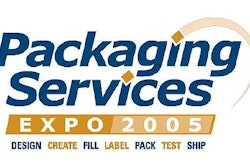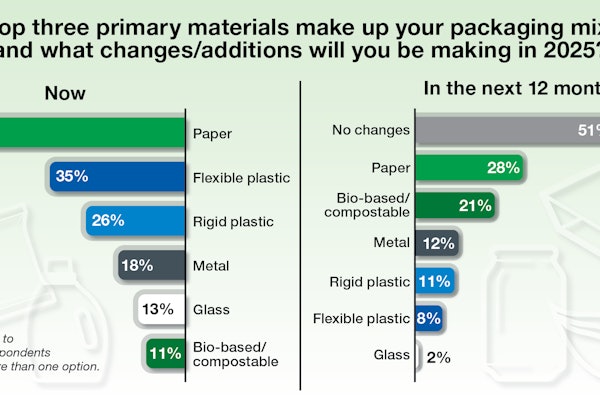Even after a controversial late January congressional vote seemed to decide things, the situation about country-of-origin labeling (COOL) for meat, produce, nuts, and fish is about as stable as Texas Tech basketball coach Bobby Knight.
The situation is explosive for a number of reasons. First and foremost, Senate Democrats and Republicans were angered about being bulldozed by House Republicans in late January. The GOPers had stuck a two-year COOL delay amendment in the omnibus 2004 appropriations bill.
The Senate was already on record as supporting the September 30, 2004, deadline for mandatory COOL. But it had to accept the House two-year delay amendment or else earn the nation’s political enmity for holding up approval of the omnibus appropriations bill. That inaction would have brought the federal government to a standstill.
The House GOP acted at the behest of groups such as the National Food Processors Assn. and the American Meat Institute, joined by individual companies such as Kraft Foods, Northfield, IL, and Tyson Foods, Springdale, AR. Those companies have argued that mandatory labeling will result in packaging costs way out of proportion to any consumer benefit, a position seemingly confirmed by a U.S. Department of Agriculture economic study. Spokespersons for Kraft and Tyson did not return repeated phone calls.
The USDA’s original notion, based on the law passed by Congress in 2002, was to require all muscle cuts of beef (including veal), lamb, and pork; ground beef, ground lamb, and ground pork; farm-raised fish and shellfish; wild fish and shellfish; perishable agricultural commodities (fresh and frozen fruit and vegetables); and peanuts to be labeled at retail to indicate their country of origin. Products produced in the U.S. would have to add this information to its labels. Processed food with imported ingredients, such as hot dogs or orange juice, would not have to be labeled.
Restoring the deadline
Resurrection of the 2004 deadline may be at hand, though. Senior senators from both parties, buoyed by the political boost the Mad Cow scare in Washington state last December conferred on COOL, are vowing to reinstitute the September 30, 2004 deadline.
Melanie Alvord, spokeswoman for Sen. Ted Stevens (R-AK), chairman of the Senate Appropriations Committee, said Stevens “would welcome the opportunity to revisit the issue” in the first appropriations bill that comes to a vote in Stevens’s committee. Stevens voted for retaining the September 2004 COOL deadline when that issue came up for a vote on the Senate floor.
Sen. Tom Daschle (D-SD), the Senate minority leader, was another proponent of keeping the 2004 deadline in place. “Eighty percent of the American people support country-of-origin labeling,” he said on the Senate floor in January during debate over the COOL amendment in the omnibus bill. “Over 80 percent say they would be prepared to pay more if we had country-of-origin labeling.”
Daschle intended to introduce free-standing legislation reestablishing the 2004 deadline in late February. With that in mind, he urged Agriculture Secretary Ann Veneman, who testified at a Senate Agriculture Committee hearing on bovine spongiform encephalopathy (mad-cow disease) on January 27, to keep working on a final COOL rule.
The USDA had considered dropping it. Julie Quick, deputy press secretary at the USDA, explains, “We are still moving ahead with the process.” She notes that the comment period on the proposed rule, issued October 30, 2003, was extended two months, until February 27. But she made no commitments beyond that date. “Our department lawyers are reviewing the language in the omnibus bill to determine whether we must stop all work on a rule,” she explains.
Packagers in a quandary
This very fluid political situation leaves food packagers in a quandary. Many had already begun to revamp packaging and labeling in anticipation of the September 2004 deadline.
“The industry cannot change its packaging and practices overnight, and the industry cannot begin the changes until it knows the full scope of those changes when they are published in the final rule,” says Bryan Silberman, president, Produce Marketing Assn. “COOL information is going to take up more space on labels, which means businesses will need bigger labels and need to upgrade equipment to handle bigger labels, which adds costs to the process.” Silberman says fruit and vegetable companies would need more than a year’s lead time to implement mandatory COOL.
So food packagers are in a state of some confusion; they cannot afford to discontinue COOL packaging and labeling research and development, but neither do they feel compelled, at the moment, to make large investments.
The National Cattlemen’s Beef Assn., a leading mandatory COOL opponent, is considering backing a voluntary “Beef USA”-type labeling program. Brian Dierlam, director of legislative affairs for the NCBA, says his group wants a voluntary COOL labeling program that would resemble the current USDA program where beef can be labeled “Certified Angus” beef. “This would be a promotion program under the USDA’s existing authority,” Dierlam explains. The extent to which imported beef would be voluntarily labeled as to its origin would depend on consumer demand, not federal fiat.
Other pressures
Other voluntary COOL programs are already in motion. Wal-Mart Stores, which had been pushing suppliers last summer to produce COOL labels in advance of the September 2004 deadline, has already made the decision to voluntarily label fruits and vegetables starting in 2005.
Bruce Peterson, senior vice president and general merchandise manager of perishables for Bentonville, AR-based Wal-Mart, was quoted as saying the chain’s plan will get underway with a “traceability protocol,” which will reportedly be established by the end of 2004. From there, Peterson says, the chain intends to have voluntary COOL in place on all fruit and vegetable commodities at some point in 2005.
One of the few certainties about COOL is that it will not cover some frozen fruit and vegetable products, if and when a mandatory program goes into effect. That is because the proposed rule the USDA issued last October backed away from an earlier stance that would have required frozen produce to list imported ingredients separately on the product label.
But not even that satisfied Leslie Sarasin, president and chief executive officer of the American Frozen Food Institute. “By exempting mixed ingredient products, USDA has significantly decreased the number of frozen products that require this new country-of-origin labeling,” says Sarasin. “However, by including any frozen products in the labeling law, USDA has disregarded its own definition for what constitutes a processed food item and has needlessly expanded an already devastating mandate.”
On this subject, the political environment can be confusing. For example, some state fruit, vegetable, and ranchers’ associations have one position on COOL, and the national associations take the opposite position. So it’s going to be difficult to find a quick compromise. That means food packagers may be spending considerable time in label limbo.
























